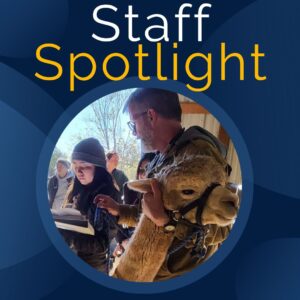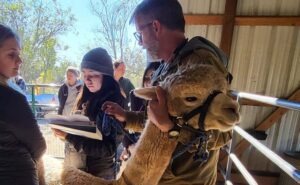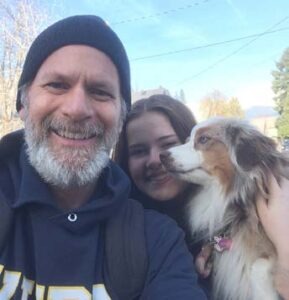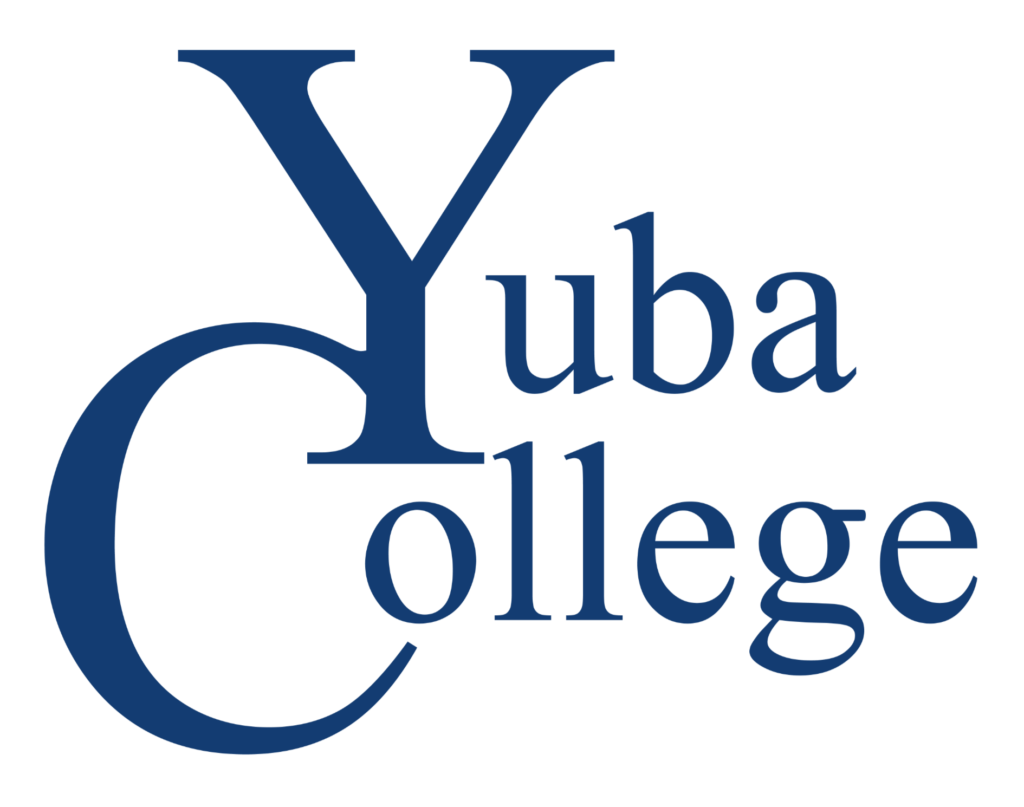
The Animal Doctor
SOMER HANSON
While in Sri Lanka with the Peace Corps in the early 1990s, Dr. Kyle Mathis was given a book of first aid tips and life hacks to assist him if he or a neighbor needed medical attention with no doctor available. Reading about different health problems sparked an interest in Mathis to pursue medical school when he returned home.
Back in his home state of California, Mathis volunteered at a hospital.
“No offense to nursing and doctor friends, but I thought it was really depressing,” he recalled.

It was around that time Mathis went to the state fair and met veterinarians from UC Davis. The thought of studying animal health had never crossed his mind until then. After volunteering with veterinarians, Mathis realized, “This is it!”
“You can still do medical things, but you’re not cooped up in a giant hospital all day,” he said.
Mathis has treated tens of thousands of dogs, cats, cows, goats, pigs, sheep, rabbits, rats, the occasional horse and one camel.
Similar to doctors, veterinarians can’t do it all. Veterinary technicians are like nurses in animal health. A lot of the hands-on, difficult tasks are done by the technician. A few examplesinclude running anesthesia, placing catheters or obtaining a blood sample on an angry dehydrated cat.
“I’m so grateful for wonderful vet technicians who mentored me, trained me and who I learned bedside manner from,” Mathis said.
Mathis had been working in private practice for 15 years and was volunteering at Yuba College in 2015 when the Veterinary Technology Program director retired. Mathis became program director in 2016.
“I get to train up the next generation of vet techs and pay it forward with all the help I received over the years,” he said.
That next generation includes student Vanessa Callihan, who is in her second year of the Veterinary Technology Program. Callihan, a military spouse, enrolled at Yuba after being a stay-at-home mom for the past decade. Returning to the workforce was intimidating for Callihan, and she said the hands-on training at the College has been wonderful.
“Dr. Mathis is one of, if not the best college professor I’ve had,” she said. “He goes above and beyond for his students and genuinely cares about each of them.”
Mathis describes the Veterinary Technology Program as a teaching clinic, where he leads students in performing spays, neuters, preventive care and occasionally other surgeries. The rural areas of the Marysville campus includes a feral cat population. Mathis has led his program in trapping, spaying and neutering about 31 cats in the last year. The cats are also given vaccines and treatment for ear mites.
“What I like about teaching is I still get to be a veterinarian, helping animals and humans,” Mathis said. “We’re lucky working with animals. It’s a job where you get to use your hands, your heart and your mind.”
Callihan’s recent experience with the spay and neuter clinic has inspired her to pursue shelter medicine, helping animals on the streets, upon graduation in May. 
Mathis, a former technical writer, was in his 30s when he entered the veterinarian field. With his undergraduate in English, he had to start over when he started vet school, earning his Doctorof Veterinary Medicine from UC Davis in 2003. Mathis’ wife attended Yuba College and both agree their best educations were at community colleges.
